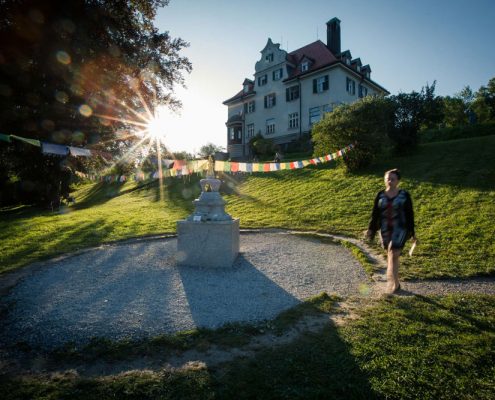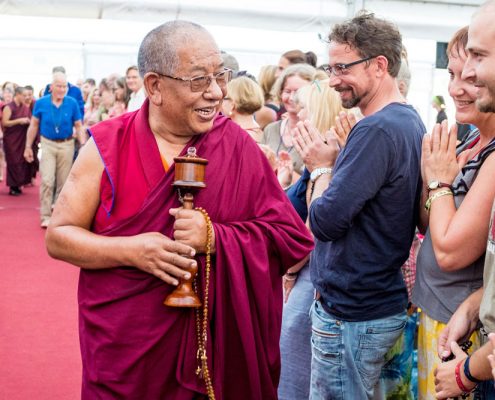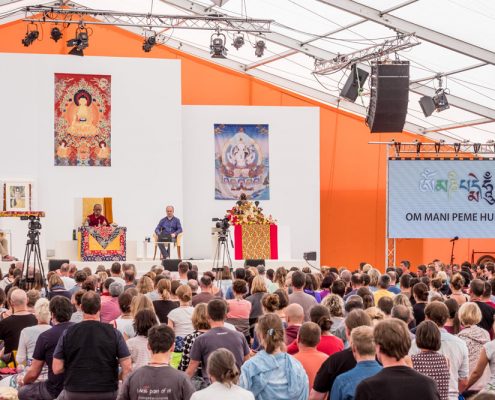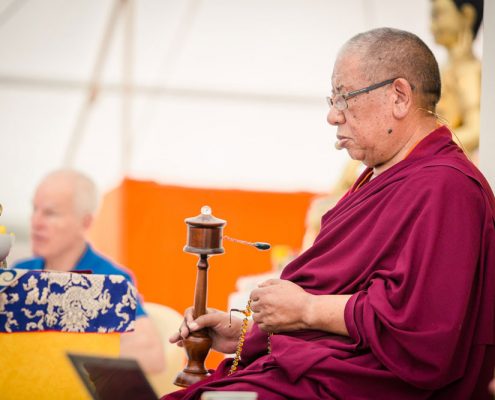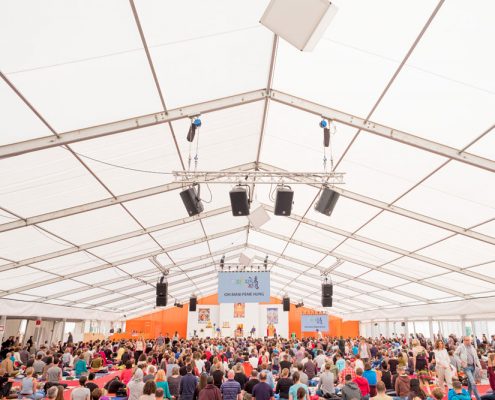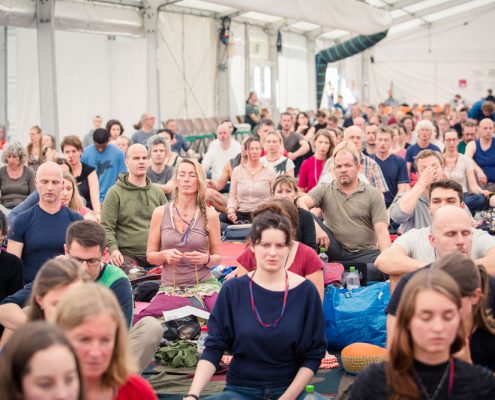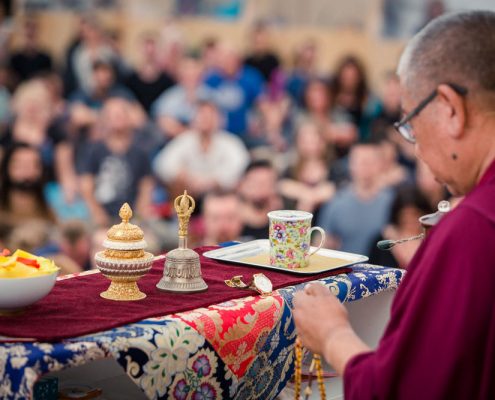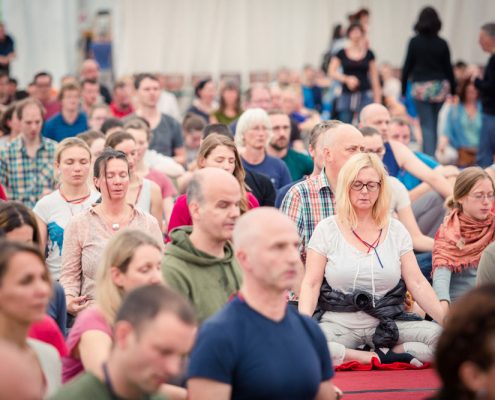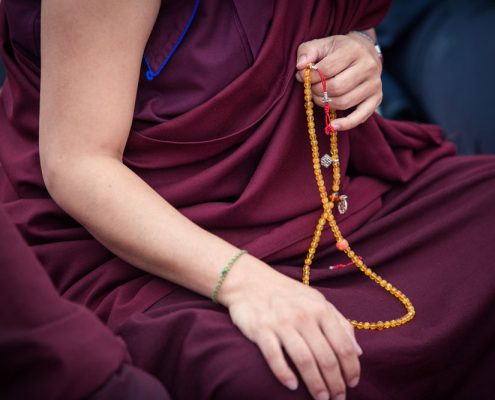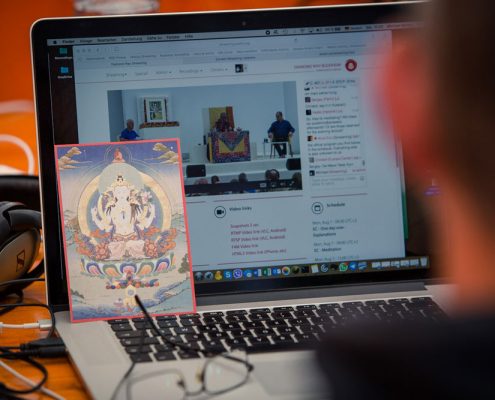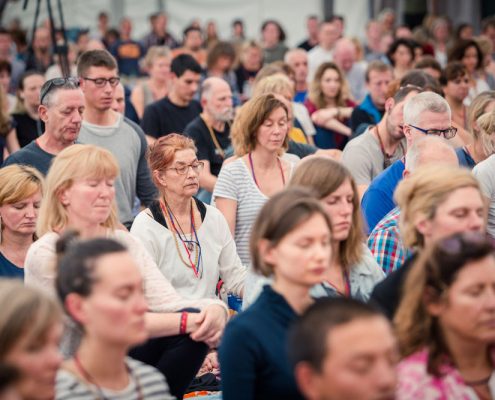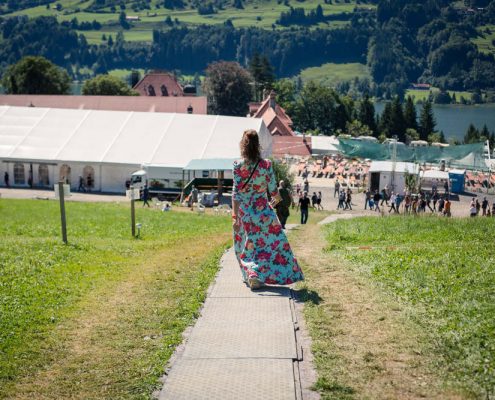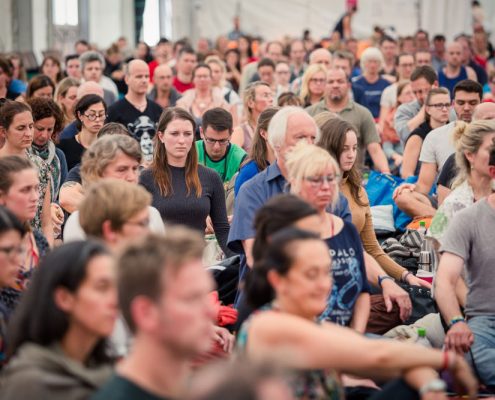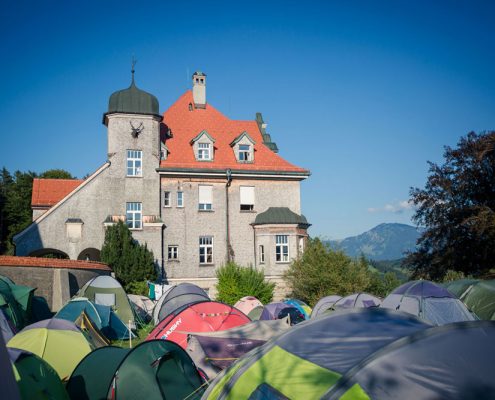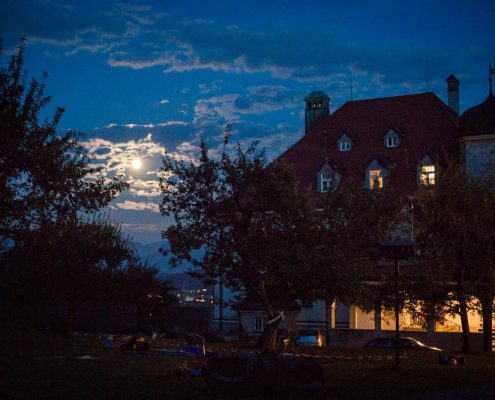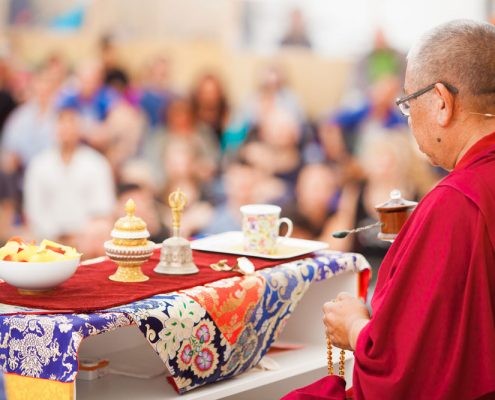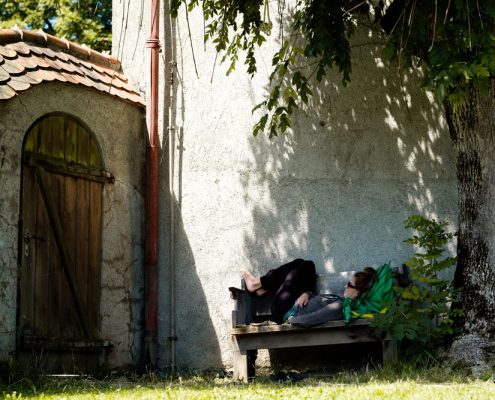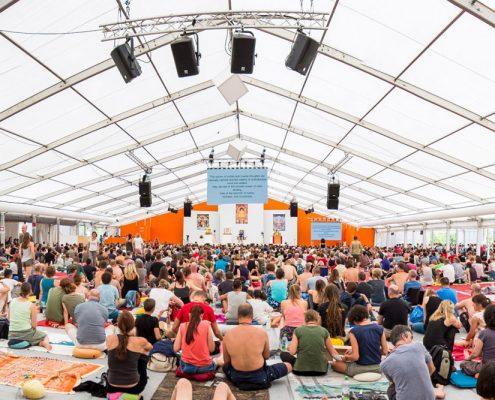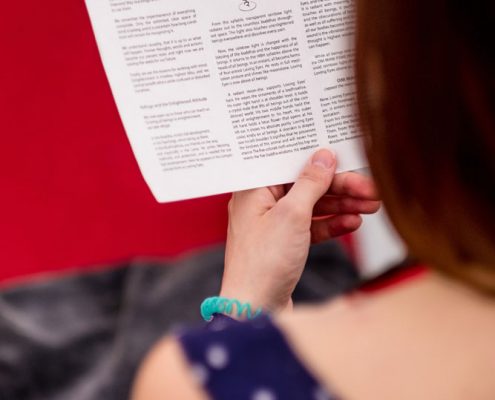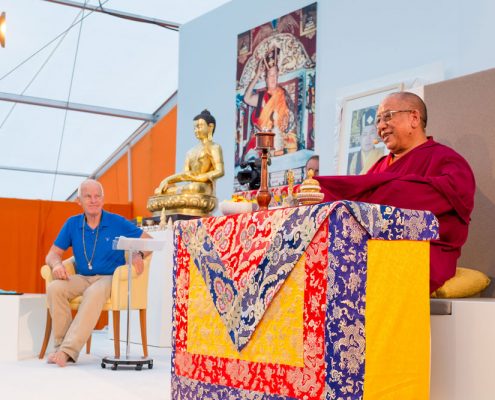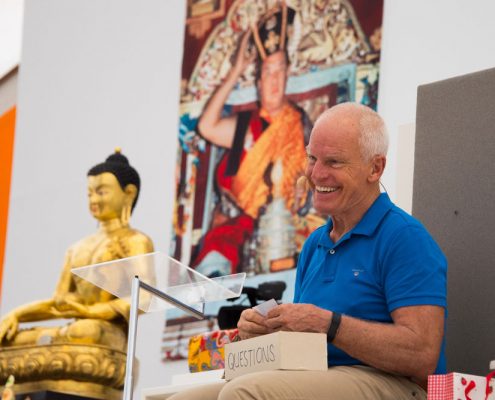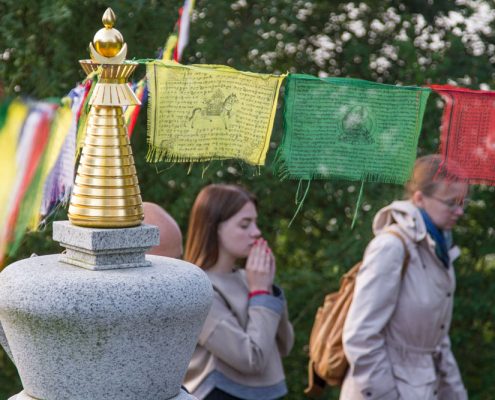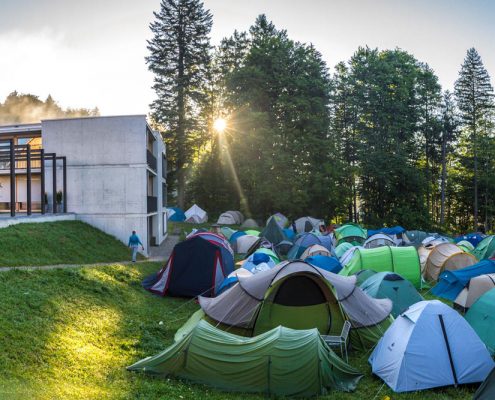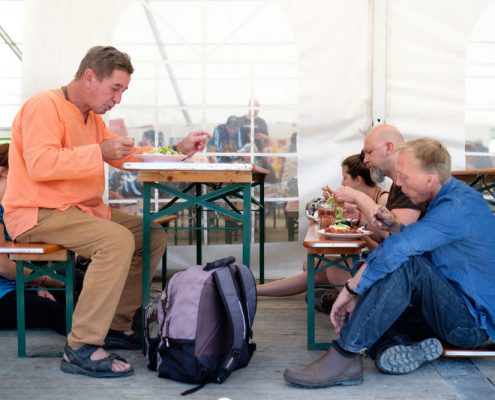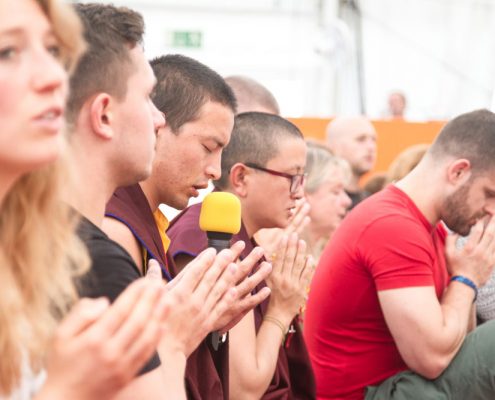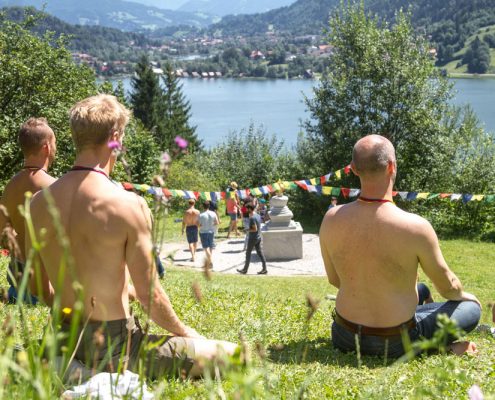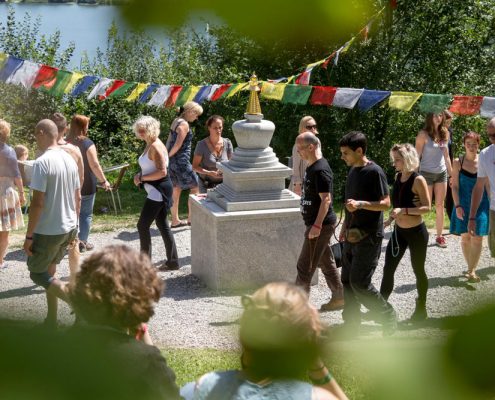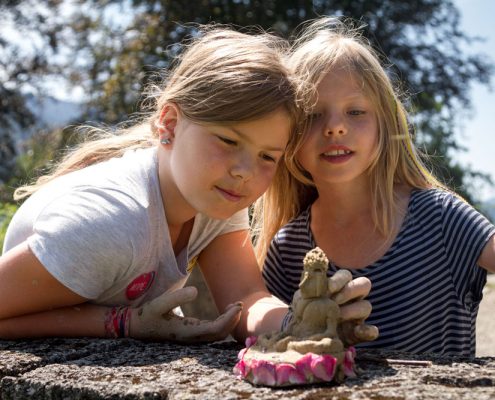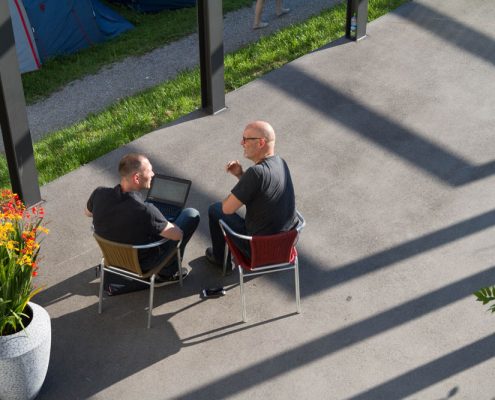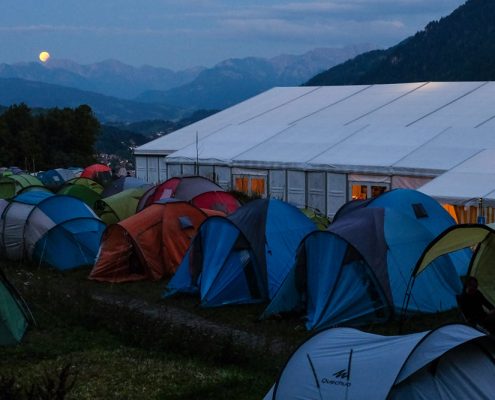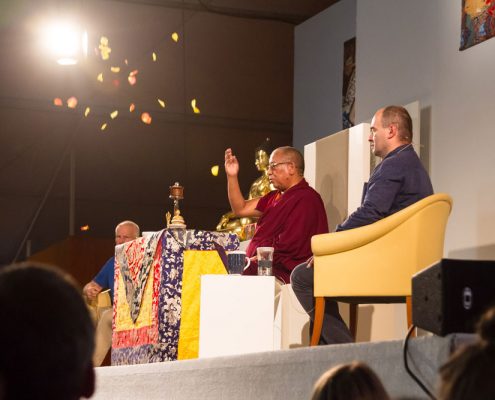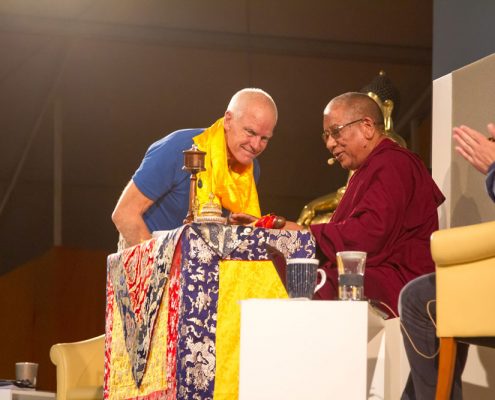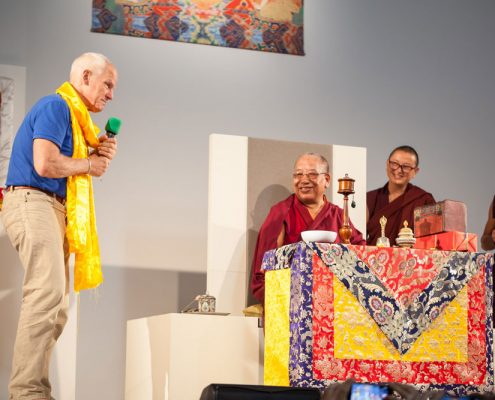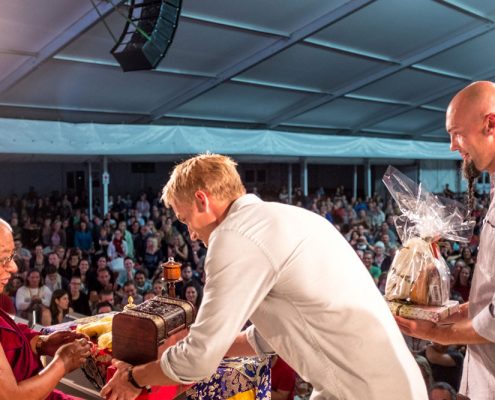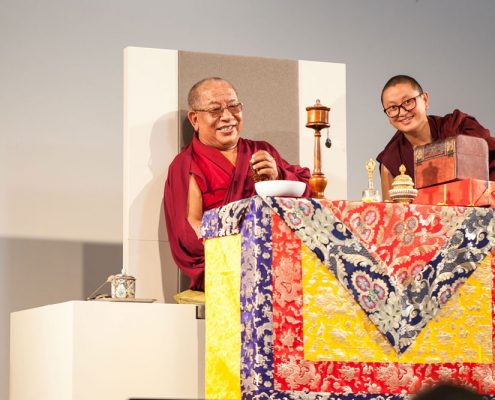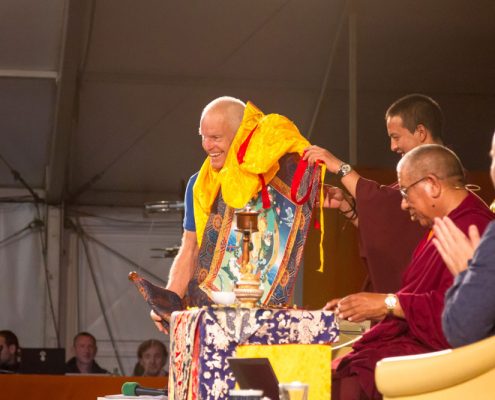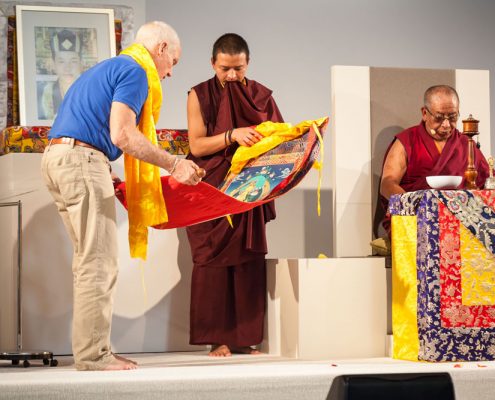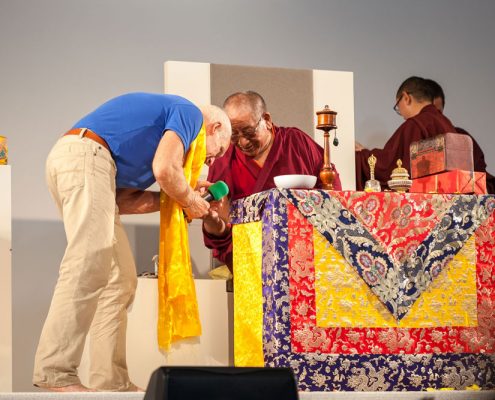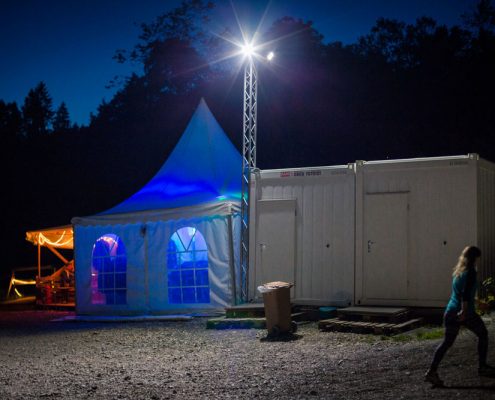Summer Course 2017: Day 8
On Monday everyone needed to be washed and in the Gompa by 4:30am. Sherab Gyaltsen gave the Sojong vows for the coming 24 hours to those who wished to take it.
What followed was an intense day of meditation practice on Loving Eyes and an enriching experience of acting with greater awareness than usual, due to the given Sojong vows:
The Eight Sojong Vows
- Not to kill: this means not killing any sentient being. Therefore one also refrains from eating any meat or fish on this day.
- Not to steal: not to take what one has not been given; this entails theft, robbery, embezzlement etc.
- Not to lie: not to communicate any untruths, particularly not in relation to one’s spiritual development.
- To refrain completely from engaging in any sexual conduct.
- Not to take any intoxicating substances: this includes liquor and any other drugs.
- Not to eat food at the wrong time: only breakfast and lunch should be eaten. The latter around midday, i.e. to begin it at around 12.00 and to finish it at approximately 12.30 p.m. No further food should be eaten until the next morning. However, one may drink water and tea.
- Not to sit on high or precious seats: one should refrain from sitting or lying on seats or beds which are higher than approximately 35 cm.
- Not to adorn oneself: one should not wear any jewelry, use perfume, dance or sing.
The Sojong vows are taken with the intention to keep them the same way the Arhats kept them at the time of the Buddha. It is said that in particularly difficult times such as ours, when the teachings of the Buddha are gradually vanishing, it is especially meritorious to keep the one-day Sojong vows in an impeccable way.
The good which results from keeping the vows means that one will turn to the Dharma more and more and that one will gradually become a real Dharma practitioner; the mindfulness developed due to the vows has the effect that kleśas and deeds which cause suffering will be recognized as such. This is the basic condition to overcome negativity and is therefore invaluable for spiritual development.
(Source: Mahayana Sojong explanation by Khenpo Chodrag Rinpoche | www.kibi-edu.org

